My woodland is coming up to 10 years. In the life of a tree that’s nothing. A few rings of growth, leaf litter deposits, wind snapped branches. But for something so long-term, where has brave ‘enterprise’ on trees gone?
I must declare an interest in knotty matters. My father worked for the Forestry Commission (100 years old in 2019) as a District Officer starting in the New Forest and ending in mid Wales. Lucky us, a family moved around wild, wet, woody, midge-ridden parts of Cumbria, Scotland, and Wales!

Historic low
All to increase tree cover from an historic low centuries ago. As if this is surprising. The UK was the first country in the world to kick start urbanisation (over 50% living in cities) in 1861. No wonder we’ve used up all the wood. Burnt for fuel, timber to build ships, prop up industry (coal pit) all led to a fearful post-WW2 pressure to seek to increase self-sufficiency in timber.
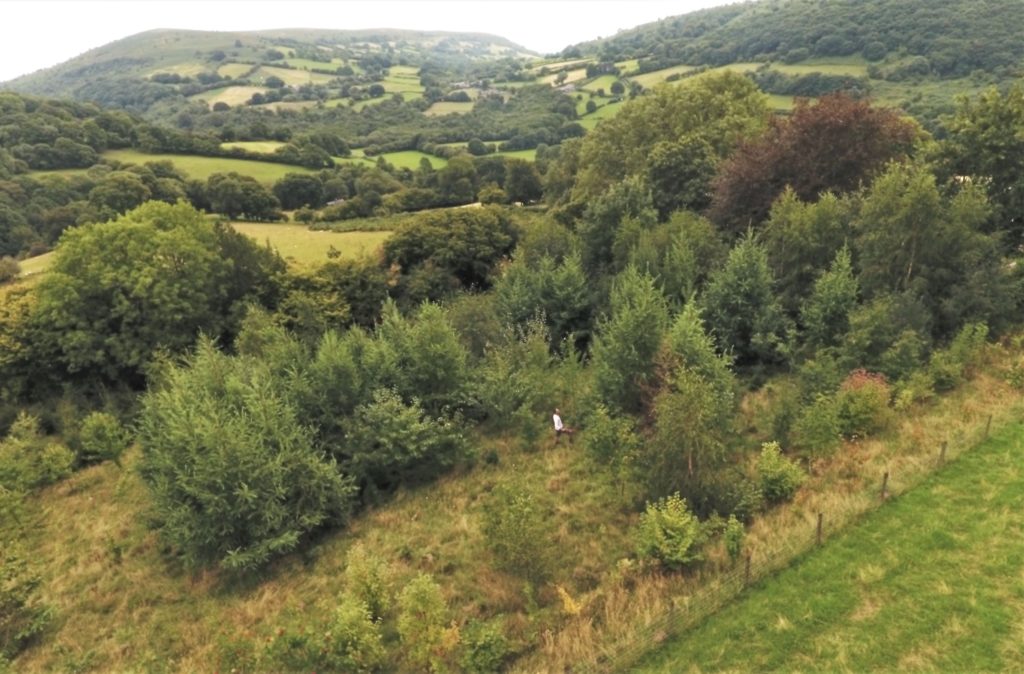
Sharpen up
It’s not a clear-cut matter when it comes to the public’s love of knotty trees. Squeamish towards chainsaws, fussy on tree species, fearful of venturing too far into them (we prefer open woodland savanna). Outraged if anyone dares contemplate selling a public forest.
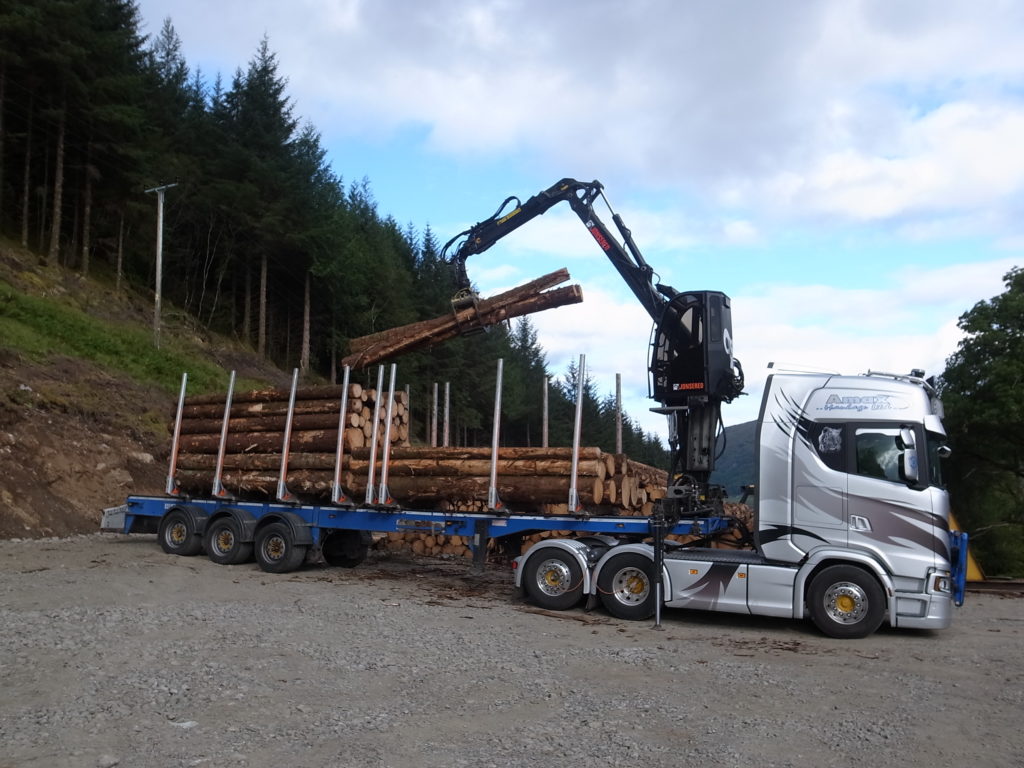
Tree slips
In 2018 during a wide ranging interview, I asked the then Secretary of State about leadership in tree planting from the government, Mr Gove’s reply was luke-warm. It mirrors this BBC ‘reality’ check. Some campaigning NGOs may not enjoy my five Times letters on ash dieback, though they might enjoy my Nature Notebook praising tree handouts.
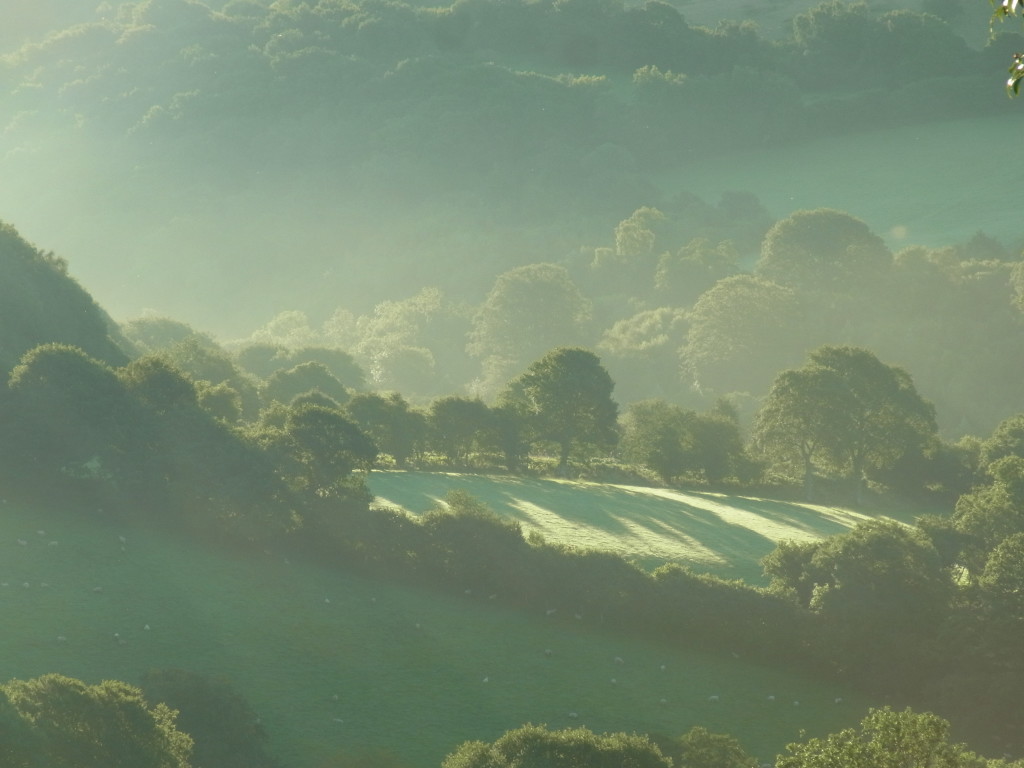
Climate coming
I now realise how selective we are over trees having interviewed the then Shadow Rural Affairs Minister, and once Chair of the Environmental Audit Committee, back in 2010. Mary Creagh gave me her own copy of a government report ‘Combating Climate Change – a role for forests’ (the Read Report). Was it too far ahead of it’s time?
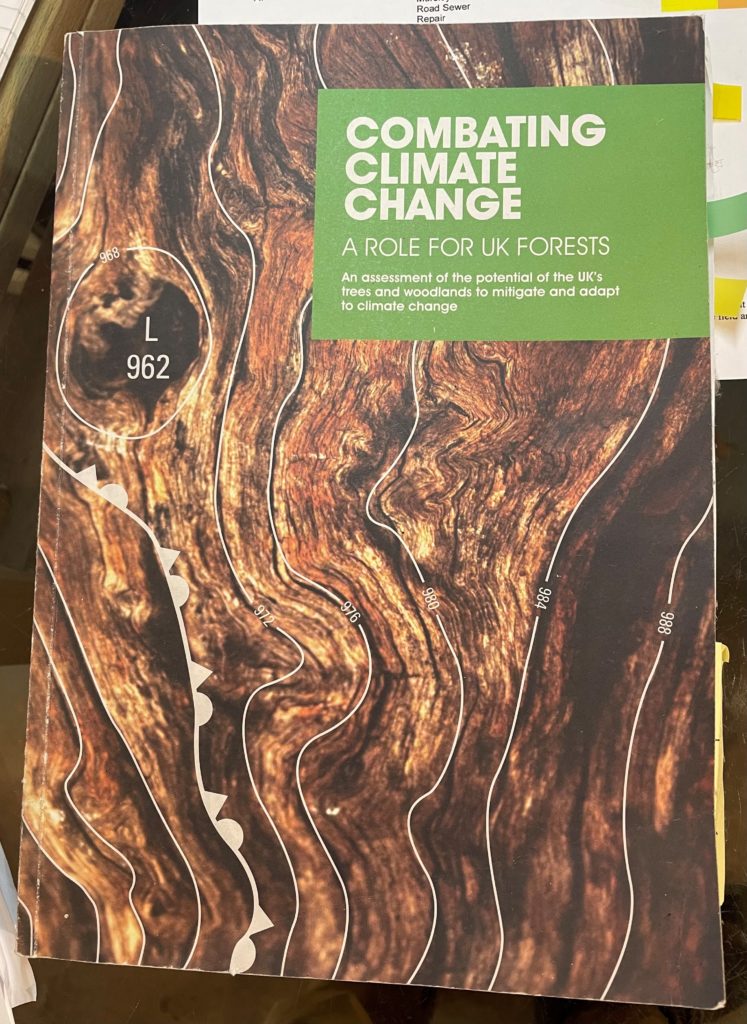
Or perhaps slightly inconvenient in not fitting an immerging narrative of ‘native species only’. Gets little mention in the current Agriculture Act.
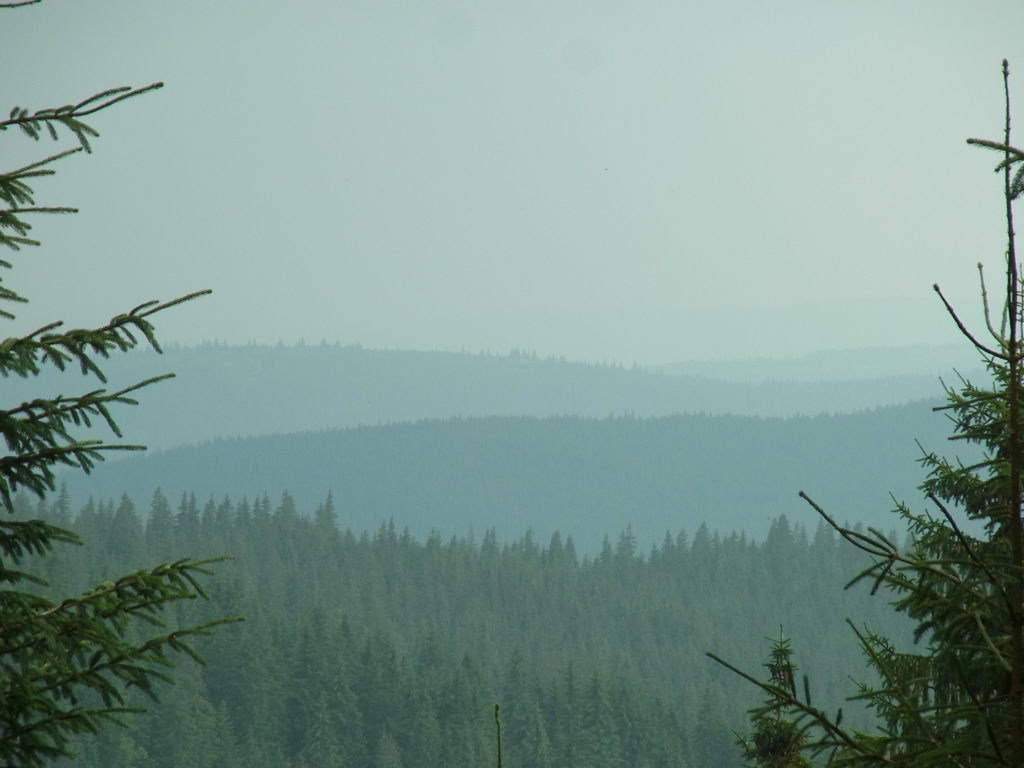
Climate is one of the biggest ‘influencers’ around trees.
Beech are finding it harder to survive in the UK. Flooding and wind-blow knock trees down, hot weather incites forest fires in young plantations, and pest-vectored diseases thrive in the UK’s warm damp climate.
Trade-off trees
Compounding all this are complex wildlife and carbon conservation conundrums. Welfare issues around enforced red deer and mountain hare culls. Ground-nesting hen harriers and curlews threatened by habitat loss to afforestation as well as crows and foxes predators from thick plantations.
Red squirrels, goldcrests, fungi love conifers of any ilk. Merlin and black grouse have adapted to live on the fringes of them. While pioneer conifer trees are a useful tool against invasive bracken in the uplands.
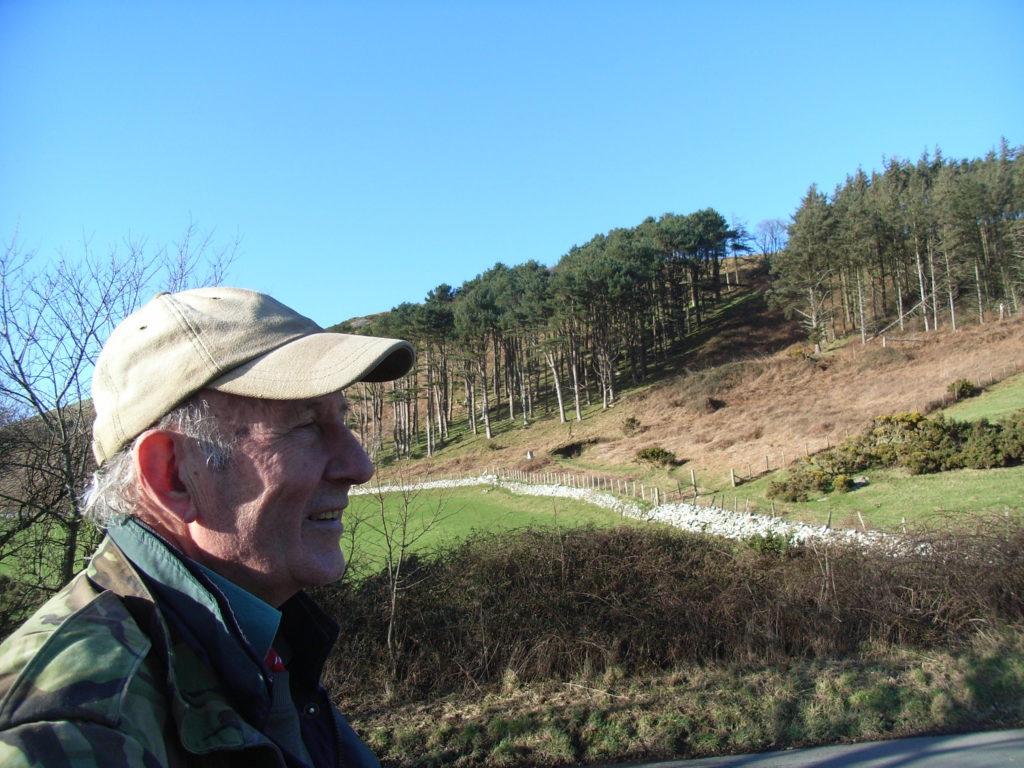
When my father left the Forestry Commission in 1989, he used his Winston Churchill Memorial Trust scholarship as a tool for his pioneering role in Continuous Cover Forestry – see last comment below.
Fresh ways to a-forest
A more nuanced form of forest management than ‘plant, thin, clear-fell, repeat’. In his own transition in forestry practice, he had been able to critically review the continuum of landscapes ebbing and flowing in response to policy, climate, markets, and public opinion.
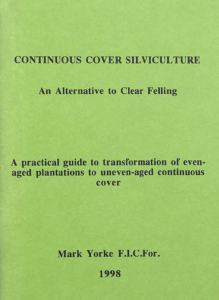
While media may be more interested in ‘forest bathing’ and carbon capture over basal area, let’s keep an eye on dull stats and get trees established in the ground by any means possible.
ends
- (updated Sept 2019) – and see this recent blog on acknowledging past policy – Oct 2021 and blog on my own small woodland
- Vlog on Doddington North forest from site visit Nov 2021.
- a blog for dad
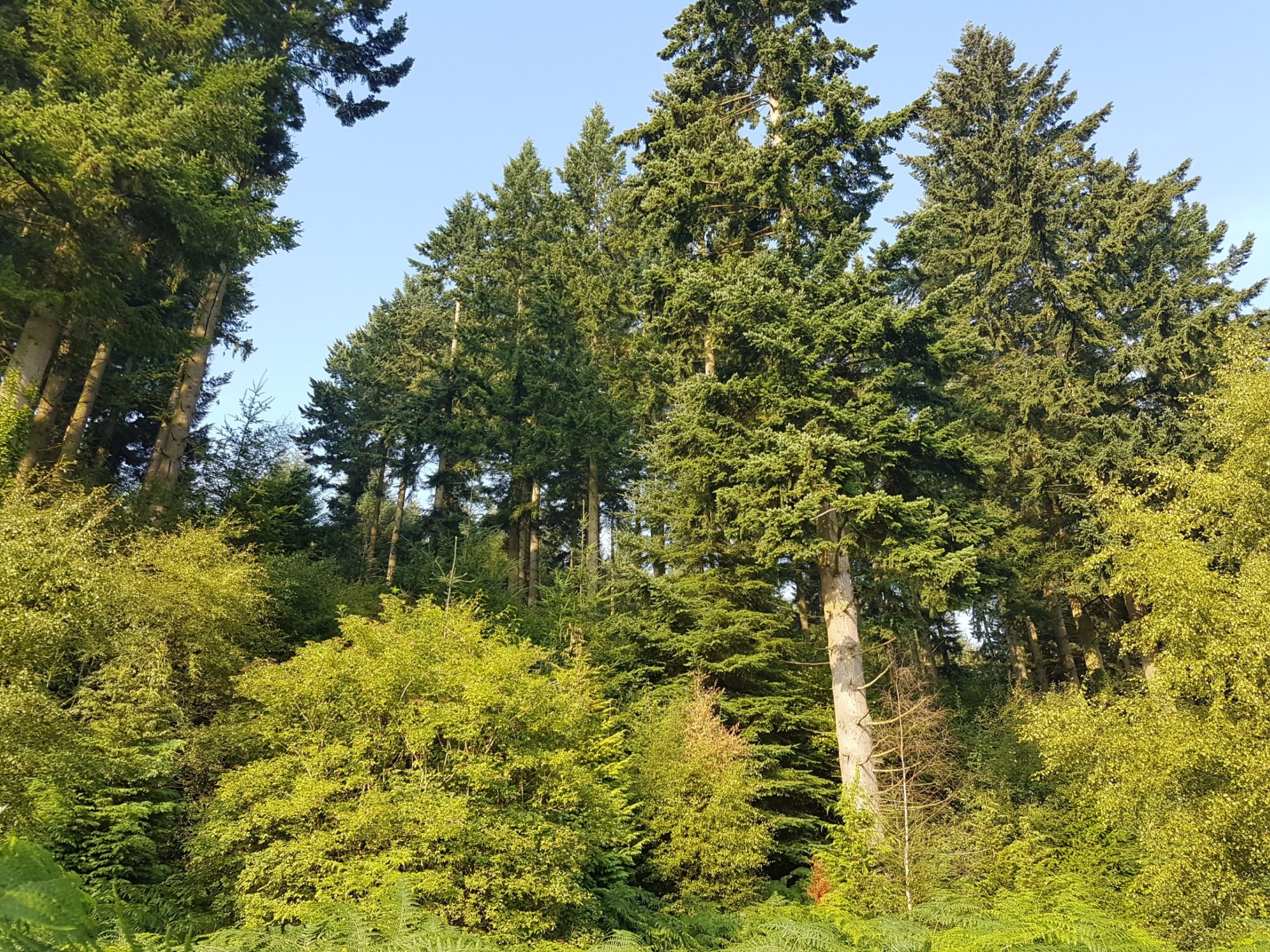
Not forgetting the Forestry Commission wish to develop sites through Forest Holidays which is a private company.
I enjoyed reading this. Both in that I miss my old man, and that there is a need to plant more trees. To this end I am dedicating 2019 to this endeavour.
I am nowhere nearly as knowledgeable as your good self with all the names and such of the trees in the UK. However in the instance of income generation from trees as well as matters of food from trees , the names of the trees of significant cash value need to be studied, the appropriate planting materials tested and then planted. I am in a situation where it is only important to keep planting, very much so against the backdrop.
This is the touching part in that I know my old man would understand and work his best to implement over and above house hold level.
Thank you.
Thank you Masiyiwa for your heartfelt comment from Zimbabwe and wish you well in your tree-planting endeavours.
a comment sent to me Nov 2021:-
“Hello Rob, I just realised from reading your blog that you are the son of Mark, one of the pioneering champions of CCF in the UK. My work is almost entirely dedicated to CCF, at the present time, and I remember one of my first introductions to the topic was on a course the Mark organised, back in the early 1990s.
It has taken a long time, but I sense that CCF is now coming into its own, and we are starting to see a significant number of practitioners take up the baton. Here in Ireland, we have a programme of training, a government funding scheme and political support for CCF, which is very much part of the national climate adaptation plan.
He was a pioneer and willing to stand by his principles at a time when there was a lot of skepticism about closer to nature ways of nurturing our forests. I have his book, and will make sure I return to this and use quotes in my talks, papers, training.
Anyway, good to connect and just to say I am so grateful for the introduction to CCF from your father. Regards, Ted”